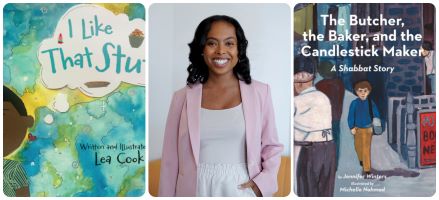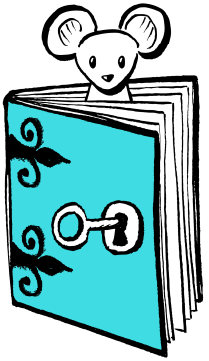Courtney LeBlanc’s Riot in Your Throat tells it like it is.

On the first truly cold day of the new year, an icy cold, snow-drifting grey day, I had a quick-fire email correspondence with Courtney LeBlanc, one of the fieriest poets and publishers in the Washington, DC, area. Based in Arlington, Virginia, her small poetry press, Riot in Your Throat, is dedicated to uplighting fierce, feminist voices and has, since 2020, published or has under contract 18 books — 15 in print and three more forthcoming in winter/spring 2025: Another Life by Frances Klein (February), Her Dark Everything by LeBlanc (April), and Underwater by Jill Michelle (May). Damn. Impressive.
In addition, Riot in Your Throat is open for manuscript-length poetry submissions through January 31st.
You started Riot in Your Throat, dedicated to poetry, during covid in 2020. How has the press evolved since then? What have you learned?
I feel this poetry is especially needed in the world, and that hasn’t changed in the subsequent years. The pandemic spurred a bunch of new presses and journals, and I’m lucky my press is still around and going strong — we have 18 collections published/under contract, and we’re open for submissions the month of January, so I’m excited to see what we receive! What I’ve learned is poetry will always be needed and necessary, but that doesn’t always sell books. During the pandemic, people were staying home and reading, which meant they were buying more books. Sales have dropped in the past couple of years, but that doesn’t influence what I publish. I just have to work harder to promote the poets because I want those books in readers’ hands!
In these extremely politically divided times, is it easier or harder to maintain your philosophy of publishing writing that “punches you in your gut” and “refuses to be quiet”? Many people in the literary world seem to want to rest these days.
It’s a little of both, to be honest. Like many people, I sometimes need to take a break and step back because it can be overwhelming and exhausting. But after taking some time to recharge, I’m able to jump right back in. And I’m a rare extrovert writer, and I bring that energy to the press. So, working with the fierce poets the press publishes, whether we’re editing a manuscript or scheduling readings or reviewing the cover, I get a lot of energy from that, and I put it right back into the press and the poets we publish.
As someone who also feels they use both sides of their brain — the business side (in my case, 20 years in corporate America) and the literary side, how do you think having earned both an MBA and an MFA contributes to you running your press? To your own poetry?
I think it really benefits the press. Before I officially started it, I sat down with a friend who works with a local DC press and picked his brain. Then I emailed questions to the publisher of my first collection. I did a ton of research and wrote a loose business plan. Then I let my creative side take over and I found an artist to design our logo, I found a web designer to create the website, and I decided when to hold the first open-submission period. It’s also beneficial to my own writing, or at least to the management side of being a poet. I coordinated my own book tour (for Her Whole Bright Life, published in 2023), which included 64 readings in 18 states. It stretched over nine months, and I made a (small) profit from my book tour. Without the business side of my brain, that would have been a much more difficult task!
As the poet laureate of Arlington, what advice do you give new poets?
Two pieces of advice: 1) Read everything you can. I’m fortunate to live in Arlington, and our library has one of the best collections of poetry I’ve ever seen in a public library, so I am constantly reading new, diverse poets because I found their book there. And 2) Find a critique friend/group. Having another set of eyes on your work, someone you trust to give you good, honest feedback, will make you a better writer.
What is Riot in Your Throat looking for in terms of new work in 2025? Are there any themes or insights you can share for writers submitting to you?
We’re open for the month of January for full-length poetry submissions, and we’re looking for two to four manuscripts to publish in 2025/2026. While there are no specific themes, the best way to get an idea of what we’re looking for is to read one of the collections we’ve published. Ultimately, I want a manuscript that I can’t put down, where every poem is powerful and I must keep reading. I know that isn’t particularly concrete or helpful, but it’s truly what I look for.
*****
LeBlanc is more than a publisher; she is a poet, too. She is a poet of great, sweeping, all-embracing, wild emotion, which is on clear display in her upcoming fourth collection, Her Dark Everything. Over her best friend’s deep depression, over the American national depression, and over the realization that, at a certain age, being wild means something different but not less vital (and includes wearing black nail polish at all times), she offers raw, often confessional poems that play with form.
I’m in no way a reviewer of poetry, though I do like to read poetry like LeBlanc’s with strong narrative threads, and I frankly loved Her Dark Everything. As I write this, it’s even more bitterly cold outside, with more snow in the forecast, and I’m thinking of Courtney LeBlanc's words: fierce, feminist, and a riot in my throat.
Caroline Bock writes stories — from micros to novels. She is the author of the novel The Other Beautiful People, forthcoming from Regal House Publishing in summer 2026. A graduate of Syracuse University, she studied creative writing with Raymond Carver and poetry with Jack Gilbert and Tess Gallagher. In 2011, after a 20-year career as a cable television executive, she earned an MFA in fiction from the City College of New York. She has short fiction forthcoming in the Hopkins Review. She is the co-president and prose editor at the Washington Writers’ Publishing House. She lives in Maryland with her family.

